Worthy is well known in the dance music scene as one of the founding members of DirtyBird, and head of Anabatic Records. During Worthy’s recent One on One Tour stop in his hometown of DC at U Street Music Hall, we had the pleasure of talking with him about everything from his early inspiration, to his rise in dance music, Anabatic Records, and some music to lookout for in 2017.
SR: Welcome back to DC, you’re old stomping grounds. So nowadays we have a strong and diverse dance music scene in DC with different styles of clubs and venues for all types, but many of them weren’t around when you grew up in the scene. What were some of you first experiences, growing up in DC, with music?
Worthy: Well I came up in the punk rock scene, so I was going out to punk rock shows at The Black Cat and the 930 Club when it was at the old spot. The other spots were all at warehouses. That was like my introduction to music in DC.
SR: Off that, your funniest or best DC party story?
Worthy: Well I remember where there was this one party where this guy from like Rancid was there, and he got in a big fight with the DC punk rock people and got beat up pretty bad.
SR: Like actually fight?!
Worthy: Yeah! Yelling, swinging, I think that’s how it went.
SR: Wow, punk shows. When you first got into DJing, what were some of your biggest influences or sources of inspiration?
Worthy: My first time really being exposed to dance music was when I moved to New York City for school and I met a couple of raver girls and they took me out to a club down the street. I think it was called the Chocolate Factory. There was a jungle room and I went in there and I was like, “Whoa, this is amazing! This is what I’ve been looking for for so long!” Actually, just a thought back, I went to this underage club in Rehobeth Beach, Delaware, when I was really young as well.
SR: What was the name of the club?
Worthy: I have no idea what it was called, but it was this little place that was all ages, so I must have been 16 or something. Maybe even 15.
SR: You probably thought it was so cool too!
Worthy: I did! I thought it was so cool and that music was stuck in my head, but I could never really find it after that. It was kind of this enigma for a while. I ask to myself ‘what was this music that I went and heard that one night?’
SR: The seed was born.
Worthy: The seed was born in me from that moment. So I think once I stumbled into it again in New York, and I was like, “Oh my god, this is amazing!”
SR: Do you remember what your first ever gig was? When it was, and where it was?
Worthy: The name of the party was called Labyrinth, but it was a jungle party in New York City. Pretty much nobody was there.
It was at this little bar, might have been like a house to the street, or something like that, in downtown New York. I remember being insanely nervous and trying to put the record on the needle with my hand being super shaky with sweat on my hands
SR: So after you got the first gig out of the way, when did you first learn to produce?
Worthy: I started producing after I finished school, so it was about 2002 when I moved to San Francisco. That’s when I really really went at it. Got found, got introduced to a couple music programs, and before that I was like, “Oh I’m gonna do that,” but at that point it was still like you had to have a ton of money to buy all the equipment you know.
SR: So what programs did you use?
Worthy: I was using Reason at first. That was one of the first versions of Reason, and I think Justin Martin had a 303 emulator that they had made, that we also kind of mess around with.
SR: What was the first ever track you made? Was it under the Worthy name?
Worthy: Umm, yeah, it was under the Worthy name. The first track I ever put out was called like…I think it was called “Sniffles.” Haha
SR: Sniffles, I can still go and find that?
Worthy: It’s on Beatport. That might not be the first one, but it was around then, or there was one called “Blue Angels.” But I think “Sniffles” was the first one. It’s all there on Beatport, why not see how far I’ve come as a producer?
SR: Yeah, it’s good to know where you’ve come from. Did you progressively work your way to a full-time music career, or did you kind of just have a “moment”?
Worthy: Being around the other guys with DirtyBird gave me faith that I could do it too. I had another job, and then I started to get a couple records signed, and was like ‘okay I’m gonna be able do this.’ I got let go from that job because my heart wasn’t there, and they could tell.
SR: When you made that decision to move for your music career, why San Francisco at the time?
Worthy: At the time it was, I came back to DC and I really wasn’t inspired by what was going on. I felt like the east coast was in this lull with what was going on with dance music. I went out to San Francisco because of Justin Martin, and he was like ‘you gotta come out here and check out the scene!’ I went for a couple nights and it was the best music. Everybody was super friendly, and I was just like, “I’m going there!” So, a month later, I moved there.
SR: Today, if you were making the jump with a blank slate to pursue a career in dance music, where do you think you would be drawn to?
Worthy: At this point, I think at this time it probably would be LA honestly. Everybody’s kind of moving there at this moment.
SR: I’ve heard you used to work in tech, and you kind of mentioned you got let go. Do you think working with computers and coding gave you a complimentary skill set with production?
Worthy: I do, yeah. I was doing database programming for a company that stocked all the Safeway grocery stores in the country. I would kind of build these things for their team members, and they’re going out to be like, “Okay, we have this many Frito Lays on the shelves.” Straight programming. But I think there is a similar mindset, like sitting down in front of a computer and making a song, or making a program, or making a website. It’s like you’re there, and you’re being creative, in a different way.
SR: Many people know of the inception of DirtyBird’s golden gate park parties, and how it was part of your rise in house music. At which point did you decide to create your own label? Or did you feel that you needed your own creative space outside of DirtyBird?
Worthy: It was a bit of both, Barclay [Claude VonStroke] was running the label. I wasn’t getting stuff signed, and I also just wanted to learn the industry a little bit better and have a different way of connecting with people within the industry. So I decided that I would start the my own label. At first it was kind of just like a pet project, like ‘Oh, I’m just going to put out like my own tracks to have another outlet for my own music.’ It was kind of an easy start to do it because Beatport was just starting up and all these like online sites were starting up, so it was really easy to start an original label.
SR: Because you could get the exposure?
Worthy: Because you could get the exposure, I had contacts there, and I was getting support, you know? But then people started sending me music and I was like, ‘Oh, maybe I should take this a little more seriously and actually make this into a label,’ because the music they were sending me was actually really good.
SR: How much music would you say you have to go through on a weekly basis?
Worthy: These days, eh, not a ton. I mean I get sent maybe 5 to 10. But they have to be pretty. I’m pretty picky.
SR: Dance music has changed a lot over the past ten years, what sort of directions or trends do you see it going in the years to come? Either more generally or for you personally?
Worthy: I don’t know where it’s gonna go in the future from here, it’s so hard to say. You know, house is going to be here, it’s been here forever, and it always just keeps changing a little bit and evolving in different new ways. It’s really crazy to think about how it’s just been the same. There have been all these other genres that have come up but they go away. I dunno, like dubstep, trap, moombahton, and jungle, but house is just there, and just constant.
SR: It keeps expanding and everything, like subgenres.
Worthy: It keeps on slowly expanding, it’s the beat. It’s the natural rhythm for people to dance to for some reason. You can dance for hours and hours and hours, and you can slow down a little bit. Or if you go listen to dubstep or something, it’s just like, “Ahhhh!” You can’t go for a long time, you have to have a break! With house music, you can groove it all night and you can go for hours if you really want to.
SR: Count those beats.
Worthy: Yeah!
SR: So any new releases or other stuff we should keep a lookout from you in 2017, Anabatic or otherwise?
Worthy: Yeah, we just had the ten-year comp that just came out. It’s got ten years of Anabatic, 20 tracks, 3 new ones, a new edit from me, a new edit from Lux Groove, a new edit from Eyes Everywhere. Then I have a release coming up on a new Toolroom label called Strangelove. It’s a two track EP. Then one release with Sweat It Out, I think that’s gonna be in April or May. And then another one, Love Another, that’s kind of like it’s housier, kind of like more mainstream.
SR: Staying busy?
Worthy: Yeah, you know staying busy.
SR: Give me three of your favorite artists right now, either maybe ones we should lookout for or just your favorites right now that you’re listening to.
Worthy: I mean the Walker & Royce guys are really killing it. I’m playing a ton of their music in my sets, nicest guys. Elevator Musik, who I’ve put out some music with. They have a release on DirtyBird as well. And this other new producer I found, Oscav, he’s got some killer stuff out there too.
SR: And this is the hardest one, but you can give the credit to the bearded wonder, Will Clarke: What is your favorite ever track?
Worthy: Haha, my favorite ever track?!? Jesus…I think I’ve heard him ask that question in his interviews. That’s a tough one.
SR: This is a hard question, you can take your time.
Worthy: It’s one you really gotta think about too. I’ll have to come back to you on that. Give me a second to think on it. There are so many cool tracks out there. Naming your favorite of all time track is like…impossible!
SR: No problem at all. Thank you for taking the time.
**Interview conducted by Kyle Raab
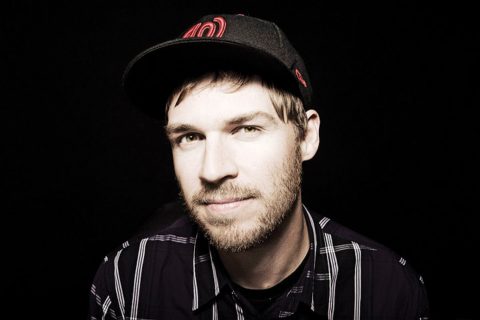
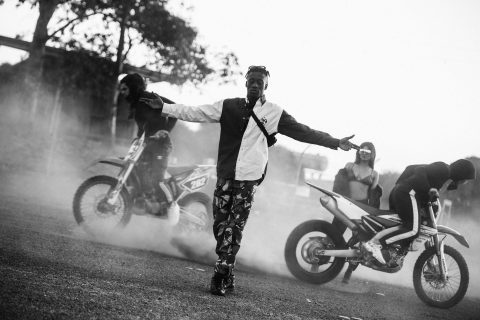
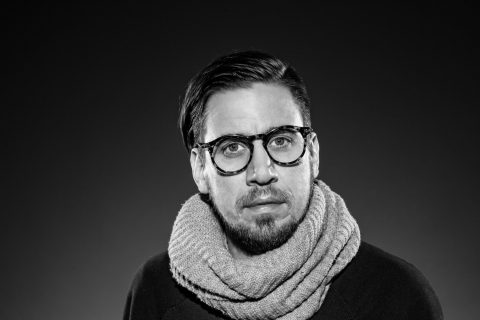
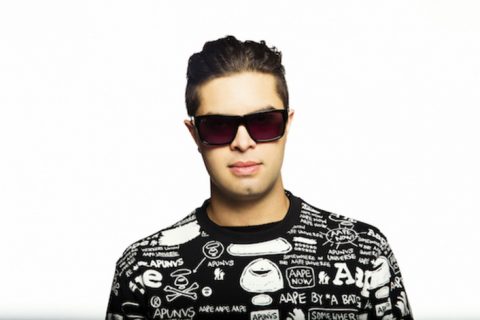
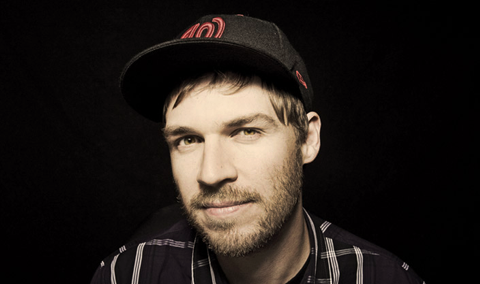
Comments